Hong Kong News

Exit rate for Hong Kong expats fast outpacing number of foreigners moving in
British national Anne is preparing to leave Hong Kong, a place she has called home for the past seven years.
Her family “adores” the city of 7.5 million, but she is giving up its seasons and scenic country parks for Singapore’s urban landscape. For the mother of two young children, the issue is the 21-day hotel quarantine that is mandatory for all returning residents. Anne, a homemaker who declined to be named, has not seen her family in Britain for three years.
“We desperately miss our families but the three-week quarantine and the continual instability of flights is too much,” said Anne, who intends to relocate in April. “My mental health has suffered considerably due to the fear of the consequence of contracting Covid-19.”
Those who get the virus in Hong Kong are immediately sent to hospital for at least 10 days. After testing negative twice, they are isolated in government facilities for another 14 days. On Wednesday, the government said it would ban flights from eight places including the United States and Britain for two weeks, citing a surge in imported Omicron cases threatening to overwhelm health care facilities. It also announced a ban on dining in restaurants after 6pm and the closure of leisure and entertainment facilities for two weeks.
As the pandemic enters a third year with no end in sight, commentators said returning to measures first adopted in 2020 when vaccines were not yet available did not inspire confidence in Hong Kong’s pandemic management strategy, given that other financial hubs were staying relatively open.
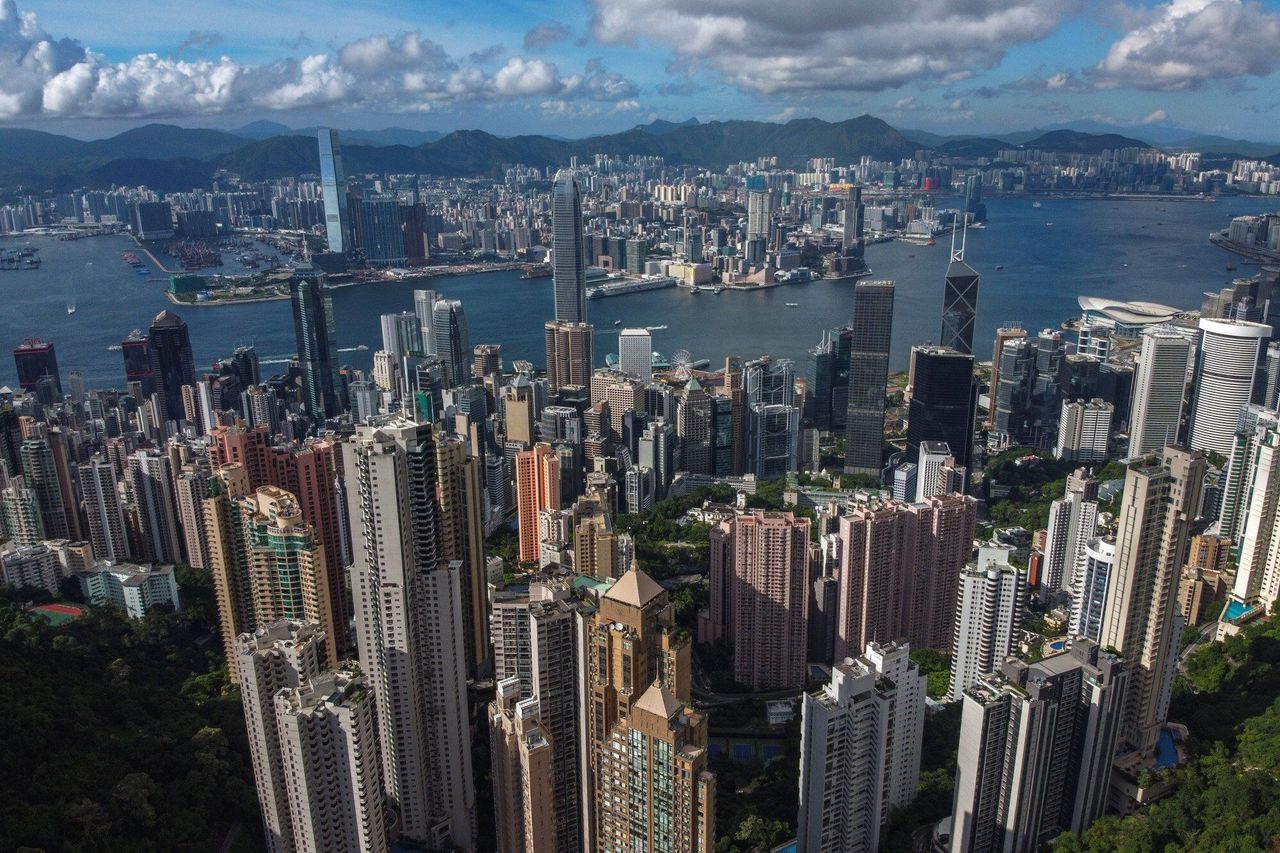 The Hong Kong skyline, viewed from Victoria Peak.
The Hong Kong skyline, viewed from Victoria Peak.
The three relocation firms that This Week in Asia spoke to said the exit rate for Hong Kong’s expats, who made up an estimated 10 per cent of the population in 2019, was fast outpacing the rate at which foreigners were moving in.
While the talk in legal and banking circles is that many of these departing expats and their jobs are heading to Singapore, the relocation firms and consultants said those leaving were also heading to Britain, Canada and Australia.
Many Hong Kong residents are seeking to leave the city due to Beijing’s tightening grip over the city’s politics, through the imposition of the national security law in 2020 and an overhaul of the entire electoral system in more recent months.
While multinational companies told This Week in Asia they were committed to staying put, analysts said a sustained stream of expats departing Hong Kong – a city long touted as a magnet for skilled labour – was a worrying sign and could dent the economy. Its international status as a financial business centre was likely to be hit, said Chua Hak Bin, an economist at Maybank.
“Hong Kong will increasingly become just another Chinese city rather than a global hub as the composition of nationalities of both companies and talent change,” he said. “Hong Kong will risk losing some of its uniqueness and diversity if expats no longer feel the same pull to live and work there.”
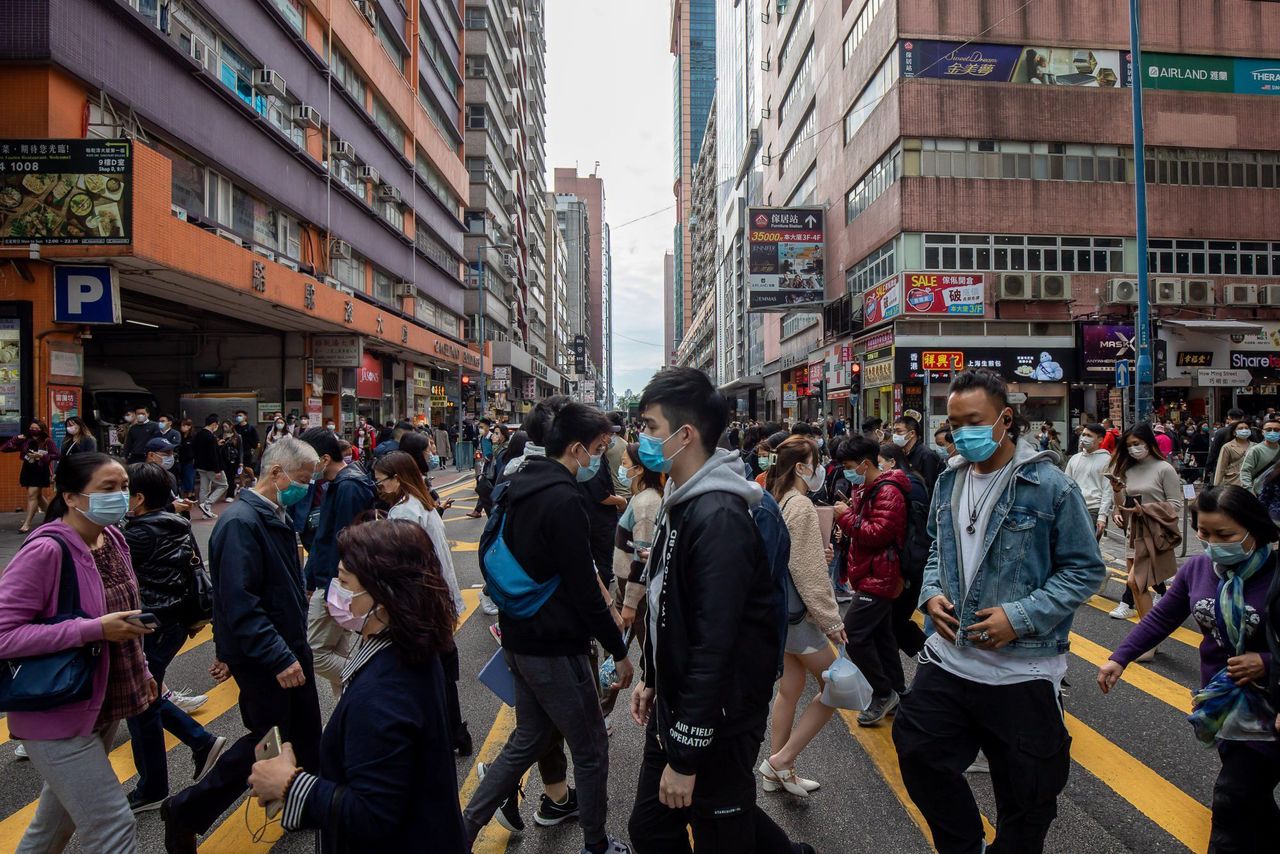 Pedestrians in Hong Kong.
Pedestrians in Hong Kong.
High exit rate
At Asian Tigers, a Hong Kong-based relocation firm, the number of customers leaving Hong Kong is three times of those arriving. This has been the case for the past 18 months, according to chief executive Rob Chipman.
“Historically, the ratio has always hovered close to 1:1 so 3:1 is quite unusual,” said Chipman, who has been in the relocation industry for 25 years. The ratio of people leaving for Singapore to those coming from Singapore was even higher than 3:1, he added.
Allied, a firm that provides moving and packing services, reported similar figures – the number of customers who moved out of Hong Kong in 2021 was almost double the number leaving in 2019. At the same time, there was a 43 per cent drop in the number of people moving to Hong Kong.
Chipman said there were several reasons for the trend. The first was job-related, with people finding new jobs in a different city or opting for a transfer within the same company.
Pandemic fatigue, like in Anne’s case, was another factor. “Much of the joy of living in Hong Kong has been the freedom to come and go easily on holiday, visit home and family in their origin country, and the ability to travel for business,” he said. “The three-week quarantine has really tipped the scales.”
Allied said the number of Hong Kong residents relocating to Singapore had almost doubled from before the pandemic, attributing this to the contrasting Covid-19 strategies adopted by both cities.
Hong Kong, alongside mainland China, is continuing with a zero-tolerance approach while the Singapore government has decided to learn to live with the virus, reasoning that it was not possible to keep it out indefinitely.
Consequently, Singapore has a more relaxed border policy. It now has quarantine-free travel arrangements for vaccinated persons with a list of countries, including the US, Britain and South Korea – a move welcomed by the business community.
Given Hong Kong’s restrictions, “a lot of reasons why it’s great being an expat in Hong Kong simply disappeared”, said an Allied spokesperson.
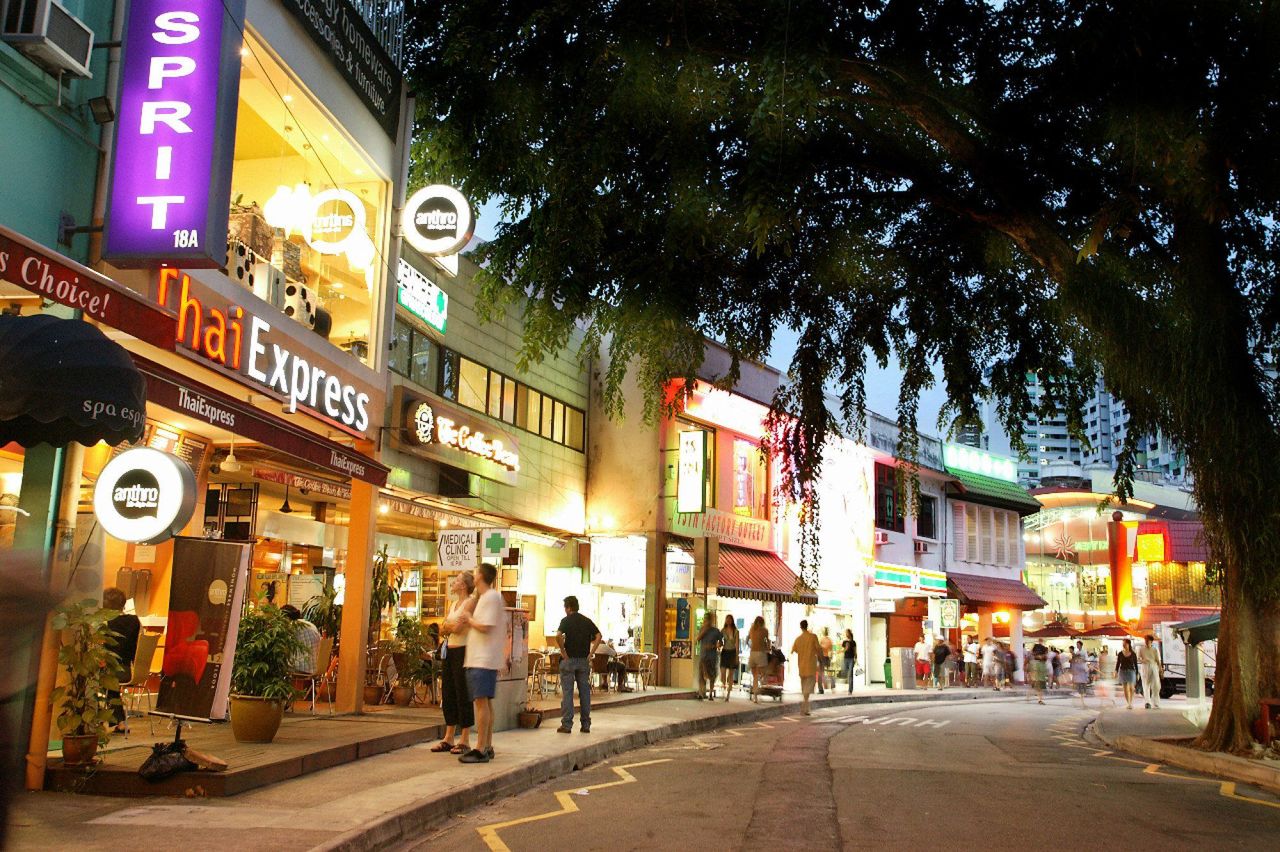 Holland village in Singapore is a favourite with expats.
Holland village in Singapore is a favourite with expats.
John Hu, founder of John Hu Migration Consulting, which specialises in processing business visas for countries including the US, Canada and Australia, said there was a 30 per cent jump in applications last year but numbers had tapered slightly. Now, there were 20 to 50 applicants each month.
Hu added that recent political developments in Hong Kong – including the closure of two media outlets – could raise fears among the business community over whether the city could keep its competitive advantage. His clients are largely business owners or professionals aged between 40 and 50.
Looming brain drain
Multiple reports over the past year have pointed to firms either ceasing or downsizing their operations, with confidence rocked by both stringent pandemic restrictions and the Beijing-imposed legislation outlawing acts of secession, subversion, terrorism and collusion with foreign forces.
German lender Commerzbank was looking to exit Hong Kong as part of its restructuring plans and would shift its Asia operations to Singapore, according to a Bloomberg report in February last year. Commerzbank did not respond to This Week in Asia’s emailed request for comment.
Another media report in April said Wells Fargo had plans to move its Asian regional hub to Singapore. A spokeswoman for the American financial firm later clarified with This Week In Asia that Hong Kong was an important location and suggestions that it was moving its focus away did “not accurately reflect” its commitment.
When contacted, five other global banks said they were still committed to their operations in Hong Kong. Deutsche Bank said it had hired “significantly” in Hong Kong last year while Citibank said it continued to be “very active”, employing “several hundreds”.
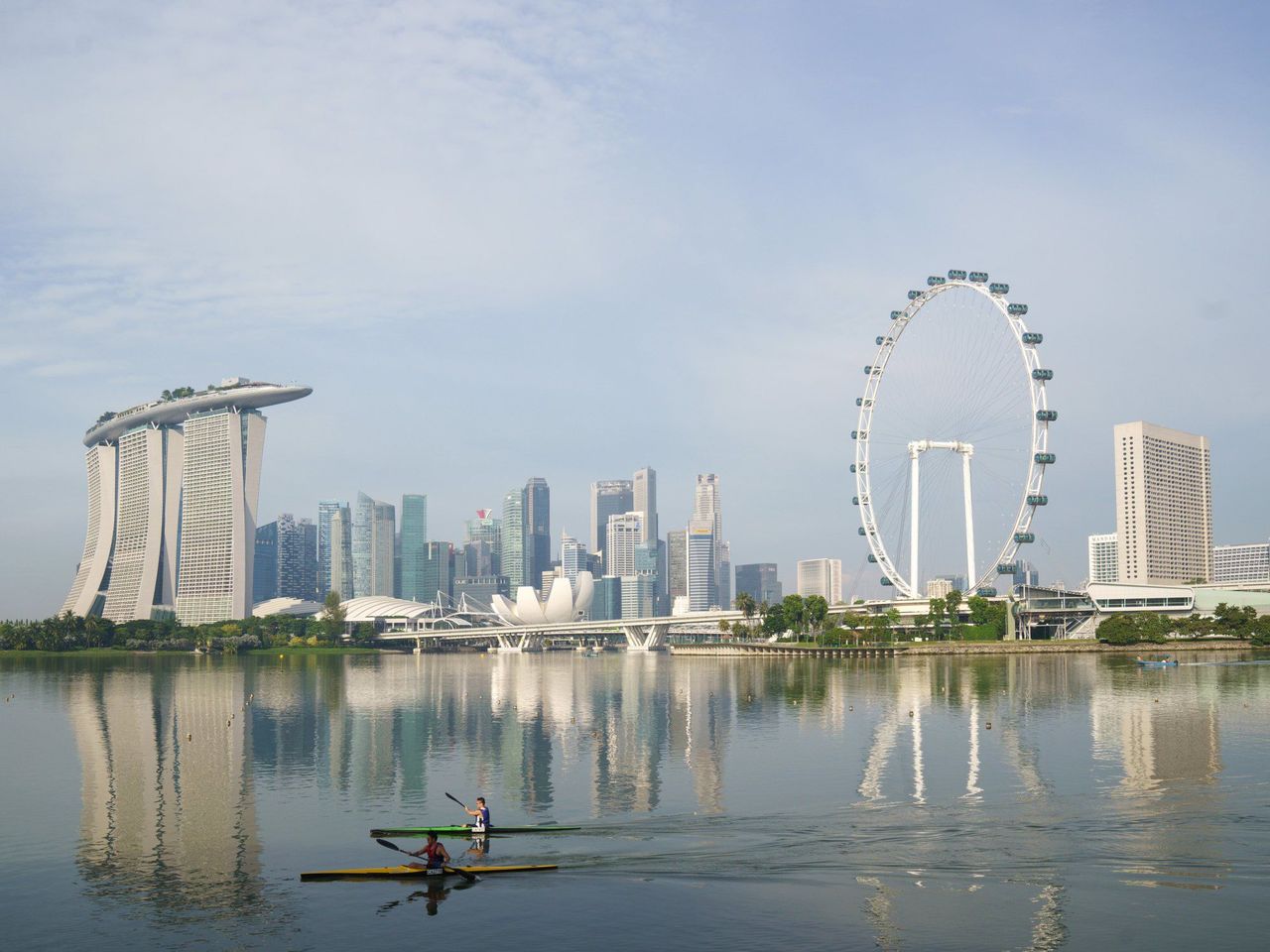 Paddlers pass the central business district, at Marina Bay in Singapore.
Paddlers pass the central business district, at Marina Bay in Singapore.
Credit Suisse said Hong Kong remained an “important hub”, noting its long history in the special administrative region. Goldman Sachs said it expects its headcount in Hong Kong – and Singapore – to grow in 2022.
Meanwhile, VP Wealth Management – the Hong Kong outfit of Liechtenstein-based VP Bank – in November announced the expansion of its Hong Kong office. Reto Marx, its Hong Kong head, told This Week In Asia that the city was a “market of great importance”, and that it had plans to grow its team there.
However, a recent scan of jobs listed on recruitment sites and job boards like LinkedIn show more firms are advertising for roles that can be based either in Hong Kong or Singapore. These include openings at financial services firms, including Goldman Sachs.
Peony Lim, director of recruitment firm ALS International, said employers now exercise greater flexibility when it comes to location as the pandemic has demonstrated that remote working can be productive.
“Companies are not fixated on where, traditionally, their hubs are. Hubs are very fluid now,” she said.
Trade associations have sounded the alarm for a potential brain drain among expats. In response to queries, the Australia Chamber of Commerce said Hong Kong’s border closures and quarantine requirements “heavily impacts” its attractiveness as a global business hub.
“The Hong Kong government’s unpredictable changes to managing travel restrictions have caused significant inconvenience for our members and the business community.” Australian firms that had left Hong Kong cited the uncertainty surrounding border measures and the desire to be close to family, it said.
Similar points were raised in an open letter written to Hong Kong Chief Executive Carrie Lam Cheng Yuet-ngor by the EU Chamber of Commerce last August, when, among other things, it warned that the international community was concerned about being “indefinitely trapped”, urging for the relaxation of measures.
Separate surveys conducted by the British Chamber of Commerce and American Chamber of Commerce last year found that companies had experienced difficulty recruiting people to Hong Kong and that their staff had left due to the quarantine rules. Some American firms indicated they had drawn up plans to move to Singapore.
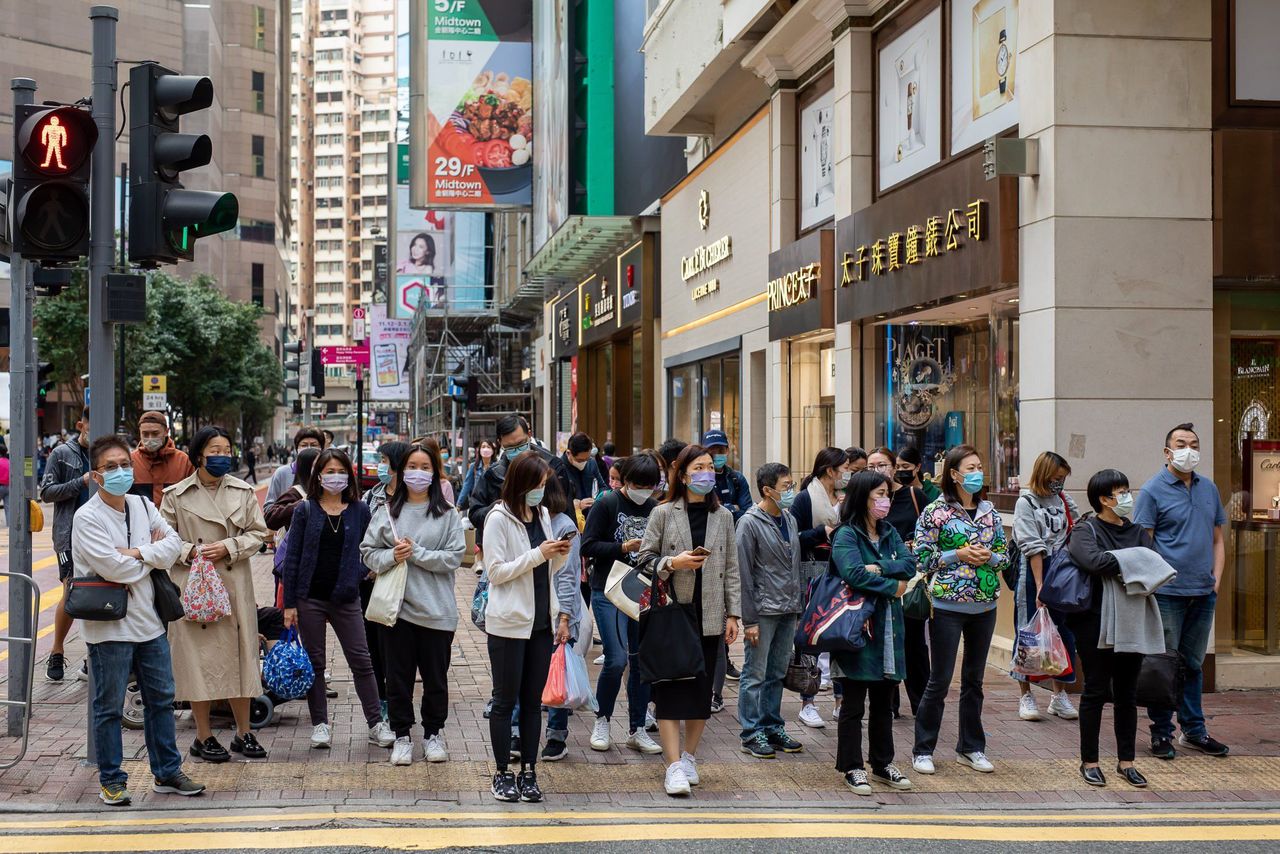 Pedestrians on Russell Street in Causeway Bay, Hong Kong.
Pedestrians on Russell Street in Causeway Bay, Hong Kong.
Philip Chan, president of the Hong Kong-Singapore Business Association, said there had been an “obvious” increase in Hong Kong business owners approaching the organisation, which helps firms settle in the city state, in recent months.
Most of them, he said, belonged to the finance sector and were looking at bringing their Hong Kong-based families over. The association, with close to 150 members now, saw the sharpest increase in membership applications in the past year.
Chan said lower property prices and a less stressful environment made Singapore attractive to workers in Hong Kong.
For one Hongkonger, Stanley Chan, Singapore’s thriving wealth and asset management industry was the key reason for his relocation in February last year. More of Asia’s high-net-worth individuals had been allocating funds to Singapore partly due to the social instability in Hong Kong, he said.
“Singapore has always been regarded as a safe haven because of its political stability and stringent regulations,” said the 36-year-old who works in asset management. “The ease of starting businesses along with its tax and intellectual property regime make it one of the most business-friendly countries in the world.”
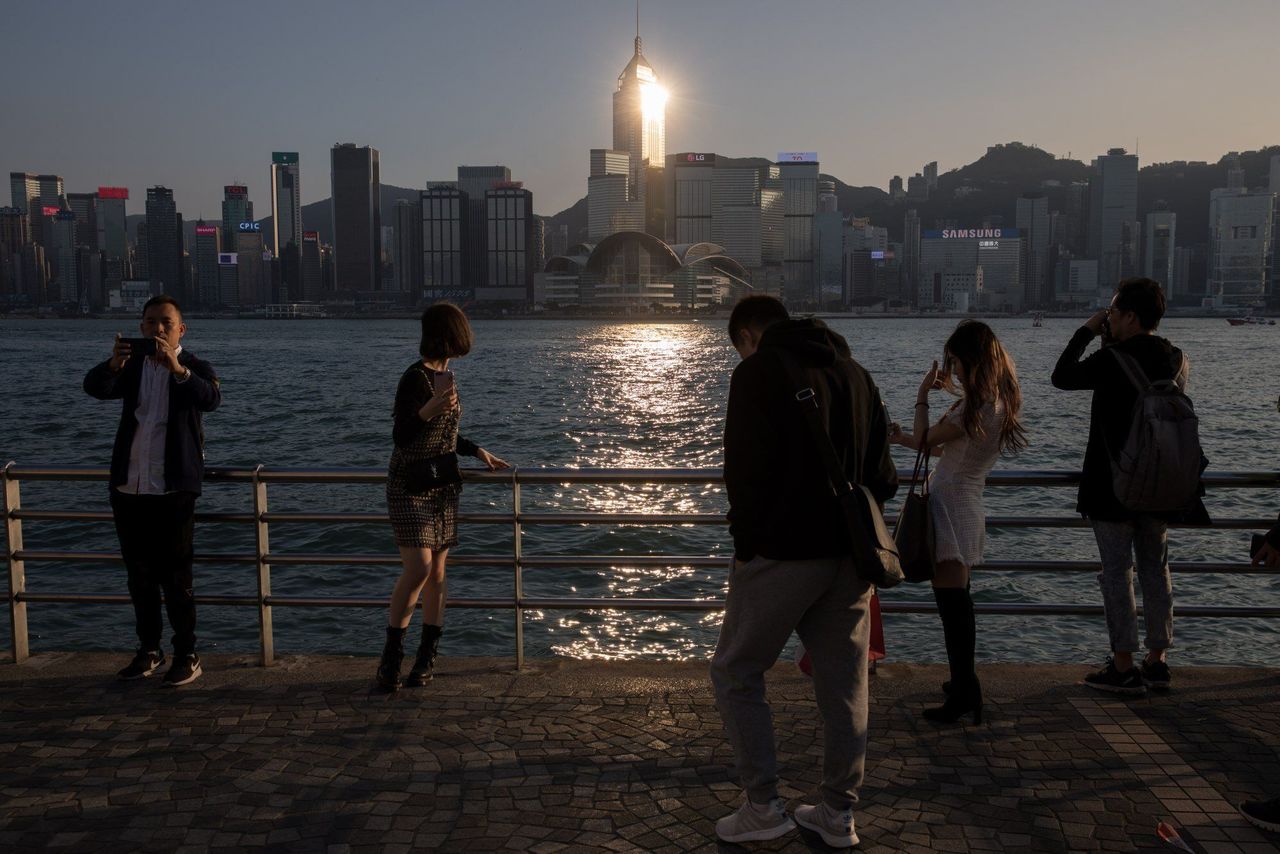 Victoria Harbour waterfront in Hong Kong.
Victoria Harbour waterfront in Hong Kong.
Gateway to China
Others held a more optimistic view of the expat situation in Hong Kong. Song Seng Wun, an economist at CIMB Private Banking, said much of the city’s appeal to expats and foreign businesses hinged on whether it remained a bridge to mainland China.
For now, he said, it appeared to still fulfil this role. As the Japan Chamber of Commerce put it: “Singapore cannot replace Hong Kong as a gateway to China”.
But Song also said some old businesses were realising that “this is not the old Hong Kong that they have been used to” as the influence of mainland China grew.
This would make some firms reconsider their stay, he said. Those caught in the US-China rivalry who were looking for more “neutral places” to do business might also be drawn to Singapore.
Despite the outflow of Hong Kong residents, there are still expats who find the city attractive. ‘Alex’, a Malaysian national, relocated to Hong Kong in September last year to be stationed in his firm’s regional office.
The 30-year-old who works in e-commerce was enticed by Hong Kong’s reputation as an international melting pot and the opportunity to grow both in his career and socially.
What lies ahead for Hong Kong?
Song said the movement of firms and workers out of the city was not a “permanent shift that is structural in nature”. It was possible the pandemic could blow over by the end of the year and restrictions be eased.
“But if we are assuming that things stay unchanged like this, then there will be a real risk for Hong Kong and its policymakers,” he said. Officials would have to assess and tweak the strict Covid-19 measures to accommodate the flow of workers into Hong Kong or it could risk losing more expats.
If the pool of foreign skilled workers were to shrink, businesses would have to fork out more money to replace leaving employees, Song said. This in turn would make the city a less attractive place to set up shop.
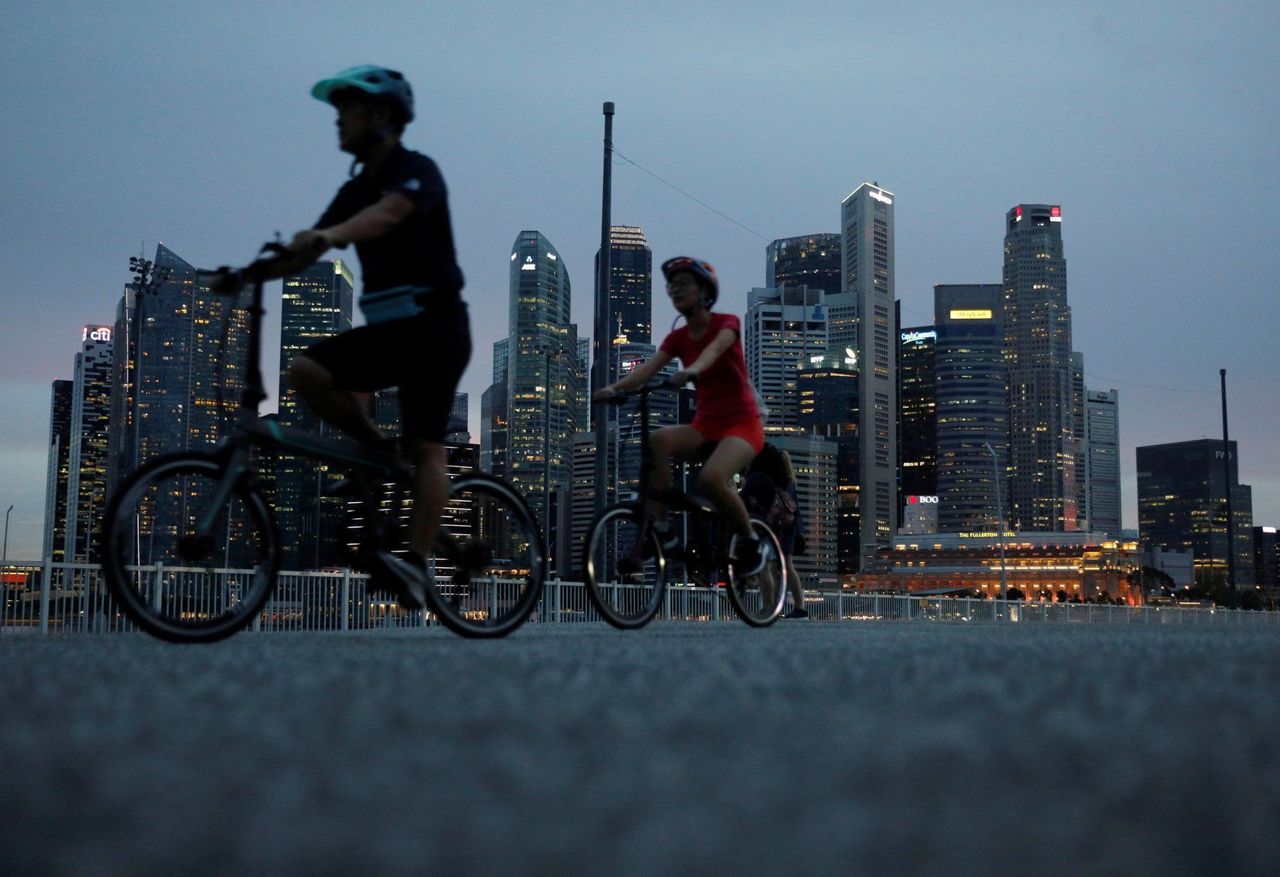 Cyclists in Singapore, where a ‘less stressful’ environment is a draw for some expats.
Cyclists in Singapore, where a ‘less stressful’ environment is a draw for some expats.
Song said there was still wiggle room for Hong Kong, judging from its relatively positive economic and retail figures but Chua, the Maybank economist, said the city’s appeal to multinationals had slipped.
Regional hubs might stand to gain from the outflow of talent and firms from Hong Kong, Chua added, though he stressed that in the case of Singapore, strict visa requirements could stand in the way with the city-state being selective about the number and quality of foreigners it accepts.
Song said the city state often put in more effort to attract talent, primarily because – unlike Hong Kong – it could not rely on mainland China for support and resources.
“Singapore has been more desperate in that sense to ensure that it stays relevant by looking at new growth industries and modernising its businesses,” he said. “And because it can stay ahead, it continues to attract talent that it needs and, perhaps, that Hong Kong has.”











